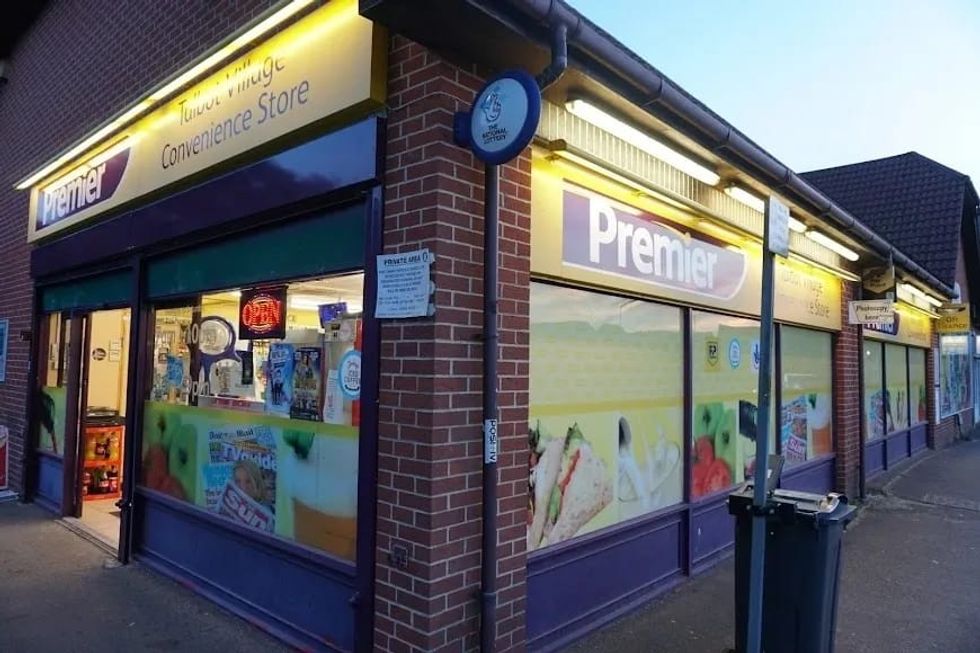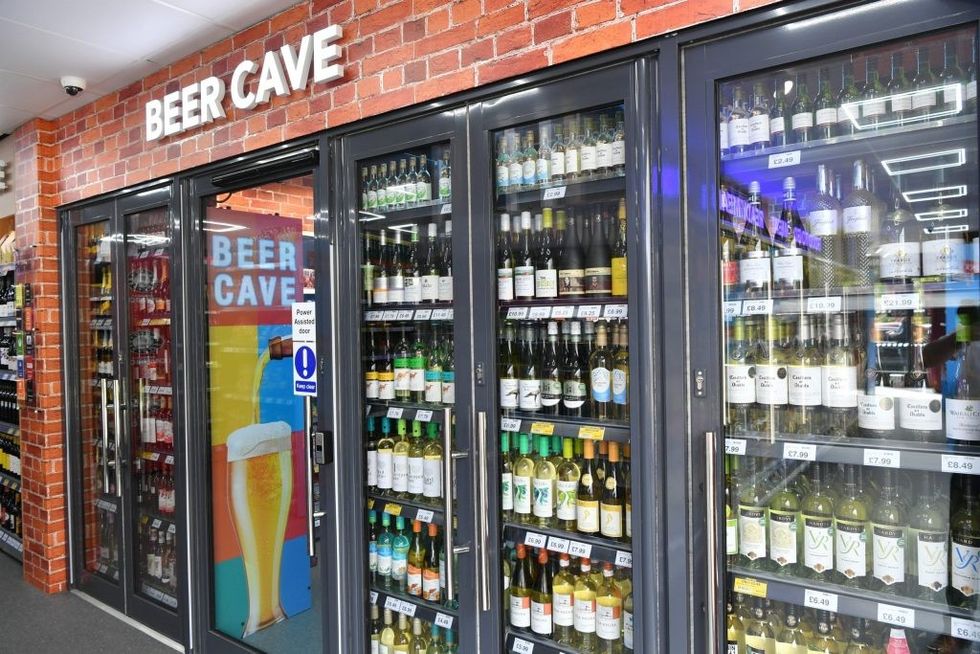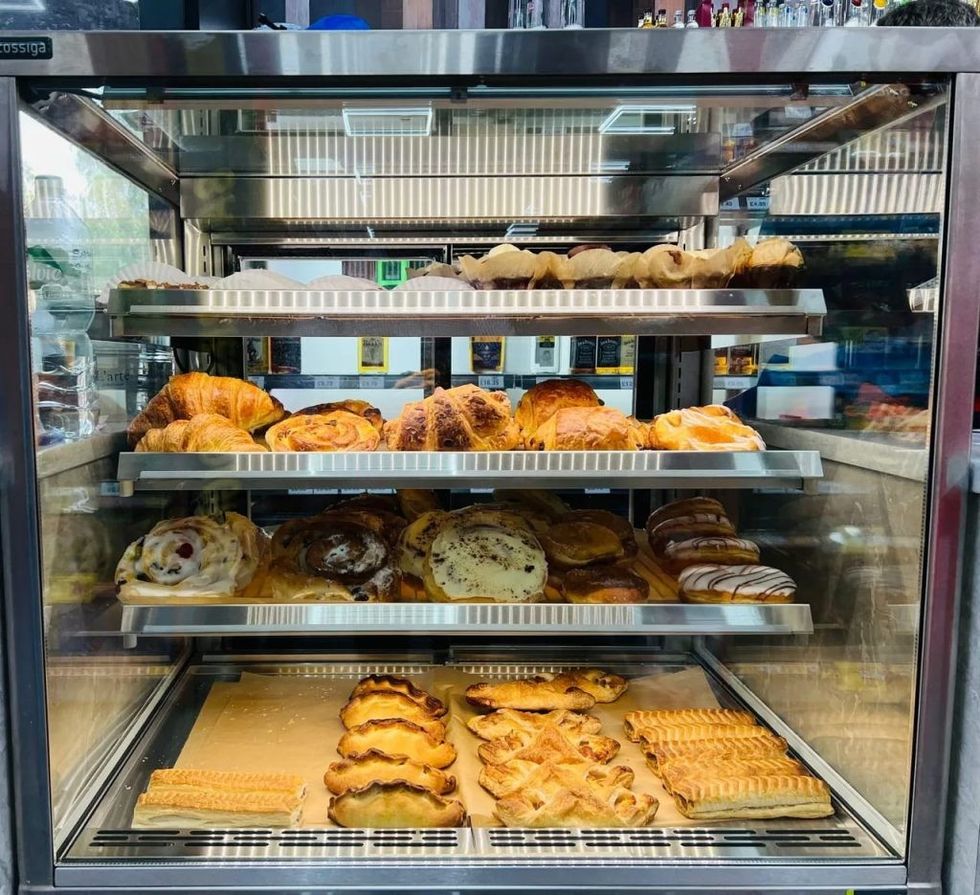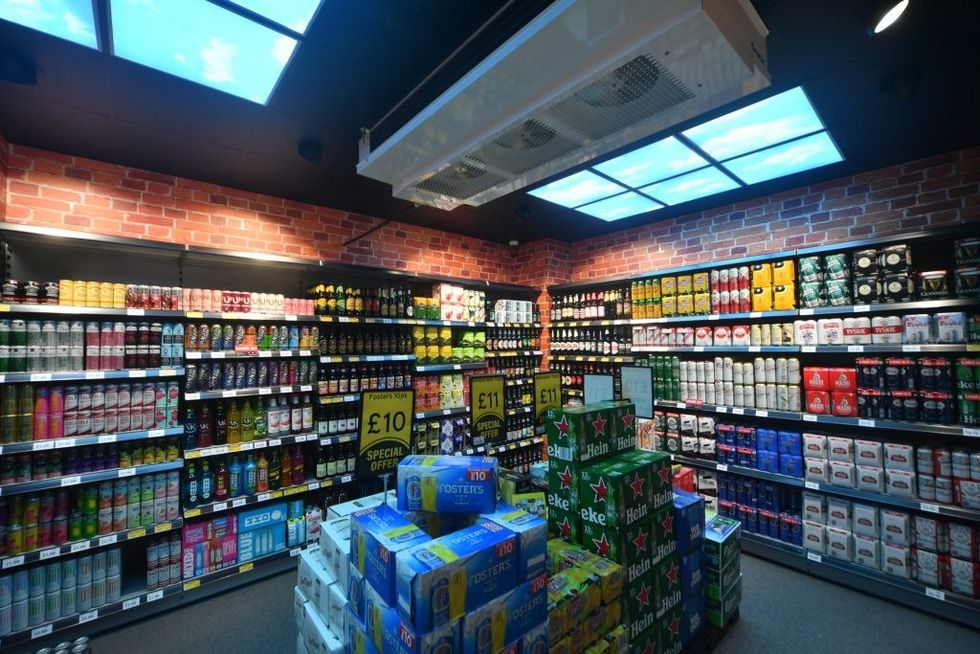Down in picturesque Poole, Ehamparam Karunanithy has redefined what the convenience off-licencing experience can be, with up-to-the-minute innovations and stunning WBS ranges
Ehamparam Karunanithy has developed a stunning off license category at his Premier Talbot Store in Poole, situated between a housing estate and 17,000 university students “across the road”.
The result is a store that caters effortlessly for its clientele. A magnificent beer cave with smart electronic doors opening onto “cool” blue sky lighting panels offers an extensive range of Ready To Serve canned drinks and bottled ales, lagers and beers.
The beer cave has become something of a social media sensation among local shoppers, regularly appearing on TikTok and Instagram, and has contributed immensely to the store winning the Off Licence of the Year Award at the 2023 Asian Trader Awards.
Ehamparam, who also runs two other stores in the area, says that that his augmented alcohol offer is adding ever more multipacks and SKUs of bottled ales. Shoppers just love the Beer Cave, and it’s been a big hit with customers highlighting the store’s value message, as “promotional packs have such strong standout in there.”
“I can't imagine that the sales would be going like this right now, its two years now almost,” he adds. “We're getting that kind of uplift in sales since the reopening.”
An ethnic Tamil, Ehamparam arrived in the UK from Sri Lanka three decades back. His journey into the retail industry began in the 1990s when he worked at a petrol station. Inspired by his cousin who owned a shop, Ehamparam hoped to start his own business.
“Originally I planned anywhere in the country, anywhere I can afford to buy a shop at that time. And then I just found one shop in Poole, Bournemouth area, and moved here,” he says.
The location's potential began to flourish as the university expanded, providing a steady customer base of students
It is situated within the residential heartland of Bournemouth’s Talbot Village and adjacent to Bournemouth University’s Talbot Campus, lending it a unique shopper demographic. As the university expanded, he recognised the store’s potential, and a nudge from his symbol group Booker, who wanted to convert the store as a concept store, prompted him to go for a major refurbishment of the site.
“I got the new lease as well at end of the pandemic, around 2020. Then I realised this is the opportunity to do something different, to change everything” he says.
In September 2022, as the store celebrated its 21st anniversary, they re-opened the store after a £170,000 refit, transforming it into one of the most innovative Premier stores in the estate and a test-bed for new technology, including sustainability developments.
Ehamparam converted the storeroom into a beer cave, expanding the alcohol section to cater to the university's student population. The store now offers a wide variety of canned drinks and bulk packs. Replacing the open fridge with a closed-door system, he installed a single large motor fridge extending over 10 metres. This upgrade not only increased storage capacity but also reduced energy costs.
“With electricity price going up and things like that, this single motor is a good idea. The door is closed all the time, only one fridge for everything,” he points out.
The store underwent a complete makeover with improved lighting, higher shelves, and a visually appealing storefront.
Promoting sustainability
Two significant innovations during the refit include a fresh bakery section and refill zone which enables shoppers to conveniently dispense desired quantities of a range of dried goods into paper bags – saving on food and packaging.
“A local supplier brings every morning fresh bakery products like doughnuts, pasties and a few [other] things. That one is a cool cabinet, not the hot cabinet, and because we are next to the university, we sell them very quickly,” Ehamparam says.
In the refill section, customers can just take whatever they need and can bring their own bag or use the paper bags provided by the store.
“You can buy what you need. They can buy for the day or for a longer time. You don't need to just buy them and keep it and later throw them away. They can buy them, maybe just for a morning breakfast. It is really going well with the customers,” he says.
As they have a very large youth demographic, the store trialled a number of new technology concepts during its refurbishment. The store’s self-scan checkout has been the first of its kind in a Premier, but it was later removed due to challenges with theft.
“It was doing great. It attracted the customers. The advantage is you don't need another staff. But some customers don't scan it. They're just trying to scan it, didn't scan and they put in the bag, and just get away with it,” he explains – adding that he would not advise others to introduce the technology.
“I'm just not doing that. I checked a few times, and there are a lot of things going out without being scanned. In the supermarkets, there's a person watching about this, but here it is a very difficult situation,” he says.
Theft, as with the convenience stores across the country, has been a challenge for Ehamparam. He has to put more cameras as people were stealing even from the beer cave.
In another first for Premier, they also introduced electronic shelf-edge labels, a development which works great for the team.
“We did only a quarter of the shop because it's quite a lot of money to invest. So maybe in the future it could get cheaper. But It's very it's a good thing because I don't need to do anything. When Booker prices change overnight, next day morning the pricing changes automatically,” he says, noting that the time (and money) they save by not having to manually update pricing information is “huge”.
Ehamparam emphasises the importance of choosing the right shopfitter and considering the store's location when planning a refit. He believes that after ten years, a store needs refreshing to maintain customer interest.
“They don't want to be in the same shop all the time. After 10 years, maybe I need another refit for the Talbot store,” he says.
His experience shows that investing in a comprehensive refit, including expanding product varieties and improving store layout, can significantly boost sales, as evidenced by a 35-40 per cent increase at the Talbot store.
“If they do more varieties and arrange the shop for more space, sales definitely will go up. I don't know how much percentage, but it will go up,” he assures.
Following the success of the Talbot Store, Ehamparam recently undertook a refit of another store in Poole, Maple Stores, which now features both a beer cave and a soft drinks cave. With three stores already under his management, he is considering further expansion based on these positive sales trends.
Community relationships
Ehamparam places a high value on fostering strong relationships with the local community. He believes that personal interactions are essential, contrasting his store's approach with the impersonal nature of large supermarkets.
“Customers feel we have a very good staff, as they talk to them every day. It’s not like other big supermarkets where they're like just machines – just serve the customer, go away and next customer. Here, it’s like a community,” he smiles.
Ehamparam trains his staff to engage with customers, asking about their needs and preferences, ensuring a welcoming and friendly atmosphere.
“It’s a kind of shop where the customer has to come back,” he notes. “If they want to come back, we have to talk to them; we have to ask them what they need, what they want to get, new products or anything like that. So we just keep train the staff as well.”
To address the cost-of-living crisis, Ehamparam keeps prices competitive by adhering to Booker-recommended prices, many of them price-marked packs, and offering regular promotions.
“Besides, I am always monitoring the prices,” he reveals. “If anybody said it’s kind of high, then I look into the prices. I always tell the staff to just look around and if people said anything please come back to me and tell them, ‘Okay, I talked to the boss’!”
His wife, Tharsini, plays a crucial role in the business, managing orders and ensuring that the store is well-stocked. Her involvement allows Ehamparam to focus on other aspects of the business, highlighting the importance of family support in their entrepreneurial journey.
He advises new retailers to maintain clear pricing on shelves and offer regular promotions. He underscores the importance of location and long-term investment, noting that the returns on investment can be realised within a few years.
“Mainly they have to keep the price on the shelf. It’s important as the customer needs to know the price. And also give offers to the customers. If it's a good location, if they keep the shop for long time, I like that. If they invest in the shop and spend more money, they can recoup this money in maybe three years’ time. But they must worry about it. And also it's hard work,” he concludes.







